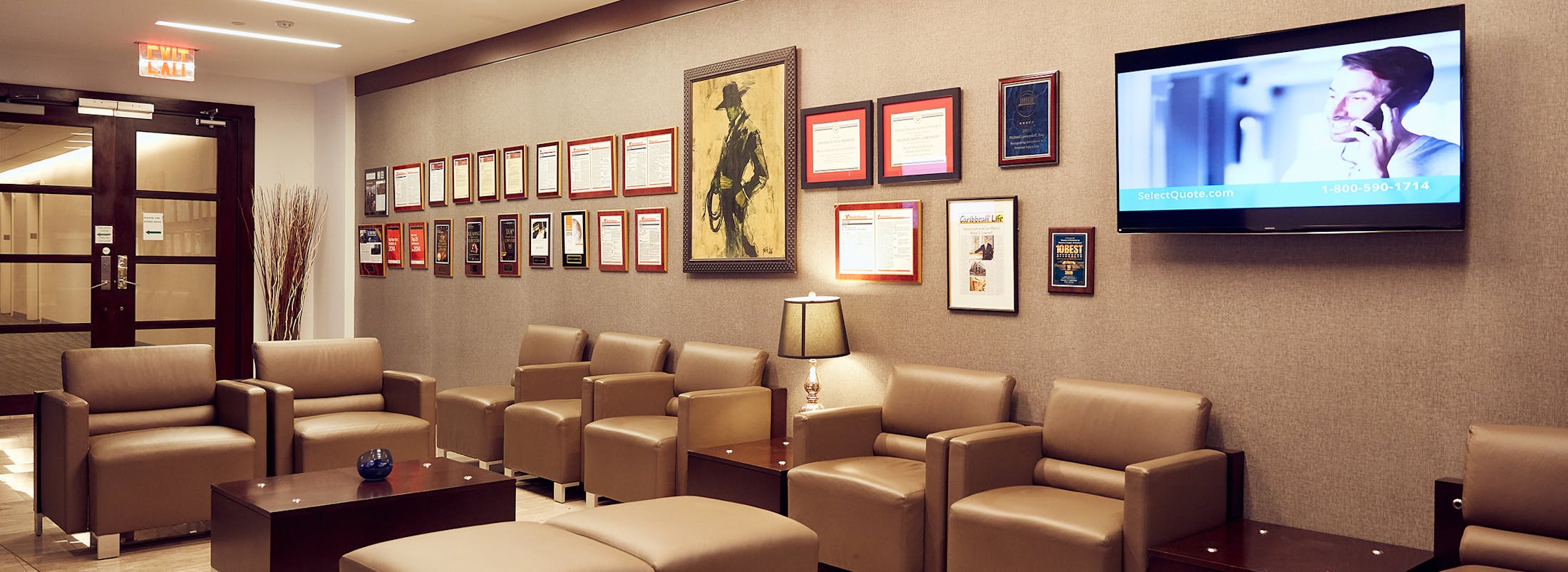What is Negligent Security?
Security is a top priority for businesses, property owners, and event organizers. However, despite their best efforts, instances of crime and violence can still occur on their premises. When such incidents happen due to inadequate security measures, it may constitute negligent security.
If you or a loved one has been a victim of a crime on someone else's property and believe negligent security may have played a role, it is vital that you consult with a knowledgeable New York personal injury attorney. They can assess the circumstances of your case, determine liability, and help you pursue compensation through a premises liability claim.

What Constitutes Negligent Security Under New York’s Personal Injury Laws?
In New York, negligent security refers to a situation where a property owner or entity fails to exercise reasonable care in providing adequate security measures to prevent foreseeable criminal acts on their premises. This failure to take reasonable precautions can lead to incidents such as assaults, robberies, or other criminal acts causing harm to individuals.
Victims of crimes occurring on negligently secured premises may pursue legal action under premises liability laws to obtain compensation for their injuries, medical expenses, lost wages, and emotional distress. The legal definition and standards for negligent security in New York are determined by case law, statutes, and precedents established by courts.
Types of Inadequate Security that Warrants a Premises Liability Claim in New York
- Inadequate Lighting: Poorly lit areas in parking lots, stairwells, or entrances increase the risk of criminal activities such as assaults, robberies, or vandalism.
- Broken or Faulty Locks: Doors or windows with broken locks or security systems that are not functioning properly make it easier for unauthorized individuals to gain access to a property, leading to theft or intrusions.
- Lack of Surveillance Cameras: Failure to install or maintain surveillance cameras in areas prone to criminal activities can hinder the detection and deterrence of unlawful acts.
- Insufficient Security Personnel: Inadequate staffing of security personnel or failure to conduct proper background checks on security personnel may result in ineffective monitoring and response to security threats.
- Negligent Hiring Practices: Employing individuals with known criminal backgrounds or failing to conduct thorough background checks on employees responsible for security can increase the risk of internal theft, assaults, or other security breaches.
- Failure to Provide Adequate Training: Inadequate training of security personnel or staff on emergency procedures, conflict resolution, or handling security incidents can lead to ineffective responses to security threats.
- Lack of Access Control: Failure to implement access control measures such as keycard entry systems or security checkpoints may allow unauthorized individuals to enter restricted areas, posing risks to the safety of occupants.
- Failure to Address Known Risks: Ignoring or failing to address known security risks or previous incidents of criminal activities on the premises constitutes negligence and may lead to foreseeable harm to individuals.
The Burden of Proof: The Injured Victim’s Attorney Must Prove the Legal Elements to Establish Liability
Here are the key legal elements a skilled lawyer will establish to hold the defendants liable for maximum damages:
- Foreseeable Risk: It must be shown that there was a foreseeable risk of injury on the premises.
- Knowledge of Risk: The property owner should have known about or reasonably should have known about the risk of harm.
- Failure to Act: The property owner should have failed to implement adequate measures to prevent foreseeable harm from occurring.
- Lawful Presence: You should be lawfully present on the property at the time of the incident, whether as an invited guest, customer, or tenant.
- Injury and Damages: You sustained measurable and compensable damages as a result of the incident, including physical injuries, emotional distress, medical expenses, and lost wages.
- Causation: Your injuries were directly caused by the property owner's failure to take reasonable and appropriate steps to mitigate the risk of harm.
How Experienced Lawyers in New York will Prove Fault?
Your attorney will employ various strategies to substantiate your inadequate security claim, such as:
Establishing Foreseeability
Competent lawyers will argue that the property owner should have reasonably anticipated the risk of harm based on factors such as prior criminal activity in the area or known security concerns.
Demonstrating Causation
They will connect the inadequate security measures directly to the occurrence of the incident, showing how improved security could have prevented or mitigated the harm suffered by you.
Gathering Evidence
The attorney will collect evidence such as incident reports, surveillance footage, witness statements, and police records to establish the circumstances surrounding the incident and demonstrate the lack of adequate security measures.
Expert Analysis
Your lawyers may consult with security experts to assess the property's security measures and determine whether they meet industry standards and legal requirements.
Property Inspection
Lawyers may conduct on-site inspections of the property to identify security vulnerabilities, such as broken locks, inadequate lighting, or malfunctioning surveillance cameras.
Get Legal Representation from a Proven and Capable Inadequate Lawyer
Don't let negligent property owners get away with endangering your safety. Take action today by contacting the Law Offices of Michael S. Lamonsoff, PLLC. Attorney Michael S. Lamonsoff, known as "The Bull," brings years of experience, a fierce determination, and a formidable track record of large settlements and verdicts to every case.
Attorney Lamonsoff, “The Bull,” will leverage his capabilities to negotiate with the defendants from a position of strength and remain prepared to go to trial if necessary to maximize your compensation. We will provide you with a free case evaluation. Call us at 212-962-1020 or reach us online.

